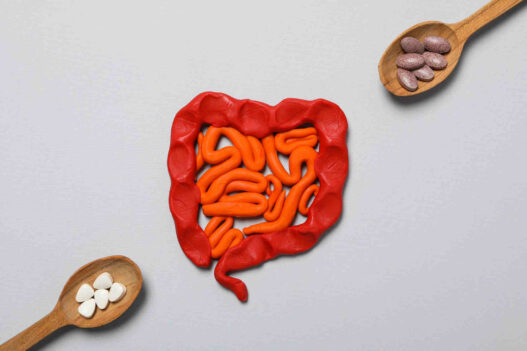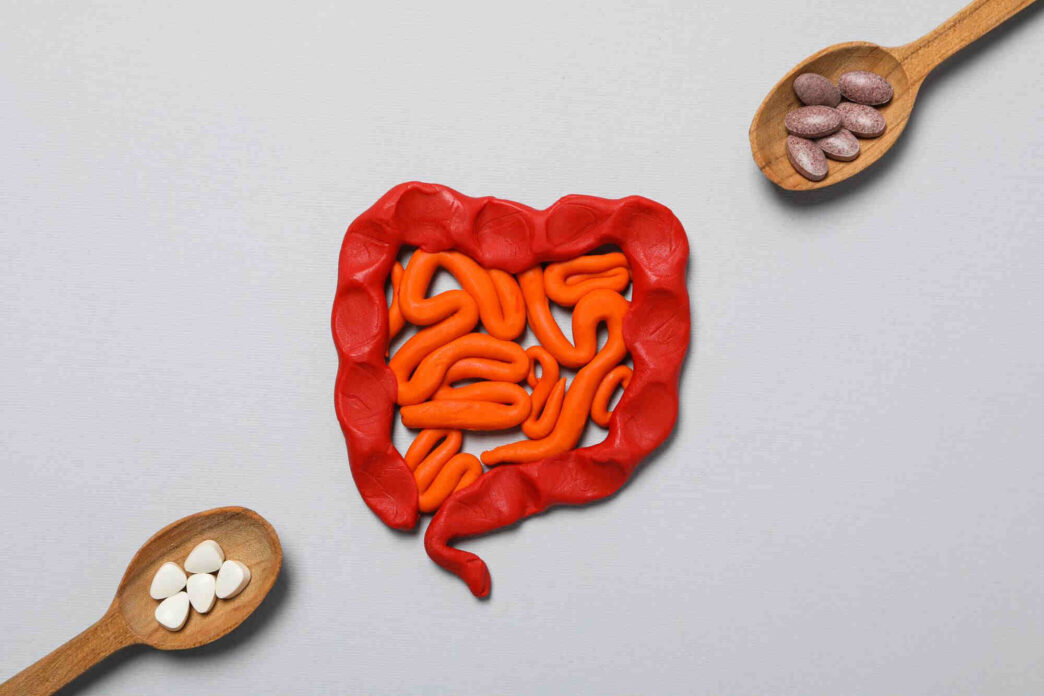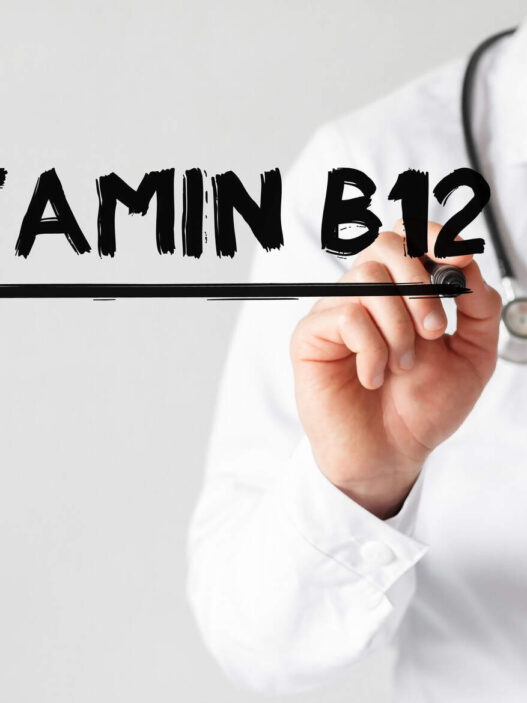Digestive disorders are a prevalent issue worldwide. The discomfortand pain associated with such issues can significantly affect one’s lifestyle. This is where supplements for digestion come into play. Here, we shall explain how to choose the right supplements for your digestive system.
As per the National Institute of Health (NIH), 60-70 million people in the United States have digestive problems (1). These alarming statistics point towards an urgent need to improve digestive health around the globe. Therefore, it is possible that the solution to improving gut health could possibly be through selecting the best supplements for digestive health.
Here we’ll explore how to choose the best supplements for digestive health, what are the components of digestive supplements, and suggest the best of them. Spoiler alert, we will also share reviews and results of real people who have used digestive supplements.
Why Is Proper Digestion Important?
Proper digestion is crucial for obtaining energy and nutrients from food. It essentially breaks food down into smaller particles.
Some of the different organs of the digestive systems are esophagus, stomach, liver, gallbladder, pancreas, and intestines. After food reaches the esophagus to stomach, the digestions starts when stomach pours acids and enzymes which splits the food into small particles. Meanwhile, the pancreas and liver contribute by sending digestive juices to your small intestine and the gall bladder secretes bile. Then, the small intestine converts semi-solid food into liquid, aiding in nutrient absorption. Blood cells use these nutrients as fuel to produce energy and do work (2).
Proper digestion is the main stage to ensure your energy production cycle operates efficiently and rapidly, thus empowering the body’s immune function. And even an average person with poor digestion may be exposed to abdominal discomfort and pain as well as other drastic effects like cramps or bloating which translates directly into digestion issues. There may also be an imbalance in the flora formed within the intestine as well as malnutrition where certain necessary vitamins and minerals are not sufficed.
Five Common Digestive Issues
As mentioned earlier, millions of people all over the world have digestive issues, and these are more common than you think.
Here, we will discuss the top 5 digestive issues that can affect your digestion followed by the types and the best supplements for digestive health.
GERD
GERD, which stands for gastroesophageal reflux disease is characterized by acid from the stomach to continually back up to the food pipe (esophagus). Food and acid will induce irritation of the lining of the stomach if there is too much acid, resulting in heartburn.
Some symptoms are:
a) Heart burn, painful feeling in chest, worsens over time and with eating,
b) Backflushing food into your mouth makes one feel like they have a lump stuck in their throat, chest discomfort or pain, throat discomfort linked to cough, asthma.
c) GERD also has other problems like, having difficulty with breathing out, and a problem with the vocal cords.
d) Persistent loss of appetite and vomiting
Peptic Ulcers
An ulcer is a sore part of the stomach lining or the duodenum. Upon eating, the body gets ready for digestion by releasing stomach acids that the body’s enzymes will use to digest food. The stomach possesses a protective mucosa and some enzymes to resist the stomach digested food acids for at least some time. If the food is unhealthy, the protective mucosal layer will be breached.
Stomach ulcers frequently arise from an imbalance between acid-resisting enzymes and the excessive stomach acid that is synthesized for digestion – and in fact, can lead the formation of ulcers. The bacteria Helicobacter pylori or H. pylori , is presumed to be the primary cause of ulcers. If either ulceration becomes severe enough, there will be increased bleeding or perforation (puncture) of the stomach or intestine.
The leading symptoms indicating the presence of the peptic ulcer are:
a) Pain in the upper stomach region, alongwith heartburn
b) Feeling nauseous, vomiting, having reddish-black stools,
c) Hunger or feeling of empty stomach
Constipation
A person with constipation generally has infrequent bowel movements (usually less than 3 per week) and find it difficult to pass stools. Stools become hard and painful to pass. Constipation may develop due to the following:
a) If there is slow movement of stool through your colon or if there is delayed colon emptying due to certain disorders,
b) GI disorders like IBS and others,
c) When too much water is absorbed from the intestines, which leads to dry and hard stools.
d) Side effect of certain medicines/ supplement, for example, antacids, iron supplements, etc.
e) The more common causes that lead to constipation are unhealthy food habits, lack of adequate hydration, not engaging in physical activities, some medications, being pregnant, and even change in lifestyle.
Dietary fibers play an essential role in the prevention of constipation [3].
Irritable Bowel Syndrome (IBS)
IBS is a condition in which abdominal pain is associated with alterations in bowel habits. It occurs because of hypersensitivity of the nerves that supply the gastrointestinal system.
In IBS, the common symptoms are:
a) Abdominal pain or cramps
b) Excessive gas
c) Feeling of fullness with sometimes bloating.
d) The patient may alternate between diarrhea and constipation.
Hemorrhoids or Piles
Hemorrhoids or piles are swollen veins, at the lower end of the rectum, that may bleed. Hemorrhoids can be characterized as internal or external.
Internal hemorrhoids are usually characterized by painless bleeding with defecation. Some symptoms to note in internal hemorroids are bright red spots on toilet tissue after defecation. External hemorrhoids can irritate, hurt , bleed, swell, and occur outside the anal cavity.
Proper digesting functioning and a healthy diet are most important for preventing hemorrhoids.
Types of Digestive Supplements
There are no “one size fits all” supplements when it comes to digestive health. Numerous dietary supplements are available to support better digestion processes in your stomach. Dietary practices, bowel movements, gut bacteria, and digestion may all be enhanced by these supplements.
Let’s examine the many kinds of digestive supplements and their mechanisms of action. Subsequently, we offer guidance on selecting the best supplements for digestive health.
Digestive Enzyme Supplements
Digestive enzyme supplements are commonly used for digestive complaints related to the gut, such as heartburn. However, it may be useful to first understand what digestive enzymes are.
Digestive enzymes are produced in the stomach, small intestines and pancreas.
Pancreatic digestive enzymes include (4):
Amylase – help in the digestion of carbohydrates
Lipase – help in the digestion of fats
Protease – help breaking down proteins for digestion, for example, pepsin and trypsin break down proteins into peptides and amino acids.
In small intestine, following digestive enzymes are made:
Lactase – help in break down of lactose
Sucrase – help in break down of sucrase
A supplement for digestive enzymes may be in order, if the patient has deficiencies, increasingly leading to multiple digestion complaints. This is the case, and even though supplements are available OTC, the recommendation is to first follow up with your doctors prior to use.
Supplements for digestion from Raw Science should assist the intestines to optimally break down food so nutrients can be produced in the body. These digestive enzyme supplements include protease to break down proteins, lipase to break down lipids, amylase for starch, and lactase to digest dairy food.
Certain foods including fruits may also contain digestive enzymes. Some examples are honey, kefir, sauerkraut, ginger, avocado, turmeric, pineapple, papaya, kiwi, mango, banana, miso, etc.
Probiotics and Prebiotics
There are trillions of protective organisms in the human body right now, which provides important health functions that include the synthesis of Vitamin K and protective functions against infection and bacterial overgrowth.
Probiotics are live microorganisms, good bacteria that imporve or restore the microbiota in the gut and keeps it healthy. Prebiotics are Prebiotics are high-fiber foods that feed the healthy gut microbiome. These fibers guard against a number of digestive problems.
Both probiotics and prebiotics are essential for gut health maintenance.
Probiotic supplements control gut flora and eliminate undesirable and dangerous bacteria. These supplements may boost immunity, control weight, and lessen the symptoms of a number of digestive issues.
Digestive enzymes and probiotics make an ideal combination for improving digestive health. While digestive enzymes take care of digestive processes, probiotics promote general health [5].
Probiotic-foods such as yogurt, kefir, kimchi, sauerkraut, miso, tempeh, sourdough bread and kombucha, etc. may also be taken in place of supplements.
Vitamin Supplements
Vitamins C, D, E, and beta-carotene are included in vitamin formulas to help restore balance in the intestine. These vitamins contain immunoprotective and anti-inflammatory properties. Vitamin C helps encourage the production of short-chain fatty acids -which provide intestinal barriers- and beta-carotene can encourage the production of short-chain fatty acids as well. [5].
Colon Cleansing Supplements
Colon cleansing supplements can cleanse your body and eliminate all the toxins. They possess different laxatives that enhance gut motility and the body’s natural reaction to toxins [6]. Colon cleansing supplements also hinder constipation and bloating.
From what we can see above there are different kinds of digestive health supplements, so which one to use, and how to choose the best digestive health supplements.
Who Should Take Supplements for Digestive Health?
As described above, anyone with digestive issues and symptoms can try digestive health supplements. In particular, these supplements are generally taken in following situations:
a) Digestive conditions – As described above but not limited to GERD, IBS, Constipation, Peptic ulcer, Hemorrhoids, and other digestive health conditions.
b) Other conditions – Cystic fibrosis, Crohn’s disease, Lactose intolerance, Pancreatic insufficiency, etc.
c) Improving digestion – For improving digestion and digestive symptoms such as bloating, gas, etc. Also, for better absorption of nutrients, the supplements may be recommended.
d) Enzymes deficiency – If there is digestive enzyme deficiency. Sometimes our bodies either do not make enough lactase resulting in lactose intolerance.
How to Choose the Best Supplements for Digestive Health?
When choosing the best digestive supplements, keep the following things in consideration:
Spectrum
We would recommend you opting for broad-spectrum digestive supplements. This will entail selecting a single supplement containing diverse enzymes (pancreatic, enzymes specific for fibre or certain sugar type, etc.), vitamins, probiotics, and nutrients to fill in all the requirements of your body rather than taking many supplements.
When opting for digestive enzyme supplements, check for the supplements with enzymes such as protease, cellulase, lipase, amylase, and lactase.
Naturally Formulated
When selecting the most appropriate digestive supplements for digestive well-being, select a natural one.
Further, if you have food allergies or sensitivities, look for supplements that avoid common allergens like gluten, dairy, soy and artificial additives. Avoid artificial coloring, flavoring, and sweetening as they are toxic to your gut health.
Safety
Always seek research-backed supplements. Research the ingredients, their formulation, and other details to ensure efficacy and safety. Look for the manufacturer as a good manufacturer meets standard criteria to produce a supplement. You should see what experts and nutritionists have to say about the effectiveness of those supplements.
Raw science meets all those conditions and offers the best digestive supplements for digestion. They include a combination of all enzymes, natural vitamins, bromelain, papain, lipase, lactase, and alpha glucosides.
However, take advise from your health care professional and do not rely on information on the internet. Moreover, the USFDA do not regulate dietary supplements. It is best to consult your physician for your healthcare needs.
Do Digestive Supplements Work?
Although digestive supplements promise to fix all problems in your gut, you might think but do they really work?
Let’s read what people say after taking digestive supplements:
Kristen
“Digestive enzymes transformed my digestive health, and have provided overall amazing benefits to my well being. These digestive enzymes improved my digestion to the point where it eliminated bloating, gas and discomfort after meals! I no longer feel heavy after meals as they break apart complex food molecules and facilitate greater absorption of nutrients, leaving me feel lighter and energized.“
“Also, digestive enzymes have enabled me to consume a greater rangeof foods without the risk of intolerances, making them a necessary part of my daily life. With their natural formulation, ease of use, and impressive results, I would recommend digestive enzymes to anyone looking for a safe and effective solution to digestive problems“.
Jamo
“This product worked very well to improve my gut health. It helped to regulate my bowel movements and reduce gas/bloating. However, I did not like how it changed my body odor. The pills have a very distinct smell which I think may be due to the annise powder listed in the ingredients. While taking them, I noticed my body odor was more pungent than usual“.
“I did some research and found that this is normal when initially taking digestive enzymes as it could be detoxing the bad bacteria out of the body while introducing the good bacteria. This may have changed if I continued using them but after two weeks with no change, I decided to discontinue using them. It’s summertime and I just can’t handle the odor. I would still recommend them for the positive benefits they offer: eliminating gas/bloating and regulating bowel movements but it just did not go well with my body chemistry“.
Megan D.
“So, I’ve been taking this vitamin for about a month now and I absolutely love how it makes me feel and how it’s working. In the beginning, I only took one a day then found out you’re supposed to take 2 lol I take 1 before I eat in the AM and 1 in the evening after work. I DO NOT feel as bloated as I used to. I have regular bowel movements. It doesn’t take hours to go to the bathroom anymore which I like because I don’t feel heavy after eating anymore. And I feel it has allowed me to maintain/lose a little weight“.
“It’s a capsule that’s not too big and easy to take. I have not experienced any side effects that I know of either. And oddly, my cycle has improved a bit since taking these“.
Conclusion
In conclusion, digestion is very important in maintaining your overall health. A healthy digestive system is critical to a strong immune system. Numerous diseases can result from your poor digestive system and weak immune system if you ignore and do not take care of your body. They also further enhancement digestive ability and strengthen immunity. However, you should always consult with a medical professional prior to starting any diet supplementation or digestive health supplement to avoid unwanted side effects.
Sources
- https://www.niddk.nih.gov/health-information/health-statistics/digestive-diseases
- Patricia JJ, Dhamoon AS. Physiology, Digestion. Nih.gov. Published September 12, 2022. Accessed January 17, 2024. https://www.ncbi.nlm.nih.gov/books/NBK544242/
- Diaz S, Bittar K, Hashmi MF, Mendez MD. Constipation. Nih.gov. Published November 12, 2023. Accessed January 17, 2024. https://www.ncbi.nlm.nih.gov/books/NBK513291/.
- https://www.hopkinsmedicine.org/health/wellness-and-prevention/digestive-enzymes-and-digestive-enzyme-supplements
- Diaz S, Bittar K, Hashmi MF, Mendez MD. Constipation. Nih.gov. Published November 12, 2023. Accessed January 17, 2024. https://www.ncbi.nlm.nih.gov/books/NBK513291/
- Pham VT, Dold S, Rehman A, Bird JK, Steinert RE. Vitamins, the gut microbiome, and gastrointestinal health in humans. Nutrition Research. 2021;95:35-53. doi:https://doi.org/10.1016/j.nutres.2021.09.001
- Gelberg HB. Pathophysiological Mechanisms of Gastrointestinal Toxicity. Elsevier eBooks. Published online January 1, 2018:139-178. doi:https://doi.org/10.1016/b978-0-12-801238-3.10923-7
Disclosure – This is a sponsored post. The product belong to a third party, and we have neither used nor endorsed any products. The views expressed are of the sponsor/author/third party and not of Healthieyoo’s editorial team. The testimonials are provided by the sponsor/ third party and not collected by Healthieyoo. We disclaim any and all liability to any party, person, company, or product for any direct, indirect, implied, punitive, special, incidental, or consequential damages arising either directly or indirectly due to the use of content published in this article. The publishers of this website take no responsibility for any health issues, personal injury, death, disability, or any other harm due to the content on our website or any advice or opinion expressed on our website. Please consult your healthcare professional before making any decision related to your health. Please also read our medical disclaimer”.
Dr. Shama Nosheen, MBBS, is a devoted medical practitioner and prolific medical writer, passionate about strengthening the doctor-patient relationship and improving patient outcomes. With extensive experience in both clinical practice and medical communication, Dr. Shama merges medical expertise with effective communication to deliver valuable insights to the healthcare community.











